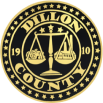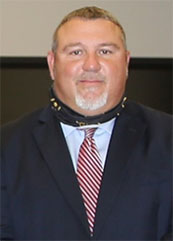Teresa W. Smith, Probate Judge
401 W Main St Room 303
P.O Box 189
Dillon, SC 29536
Phone: (843) 774-1423
Fax: (843) 841-3732
Email: teresacampbellprobate17@yahoo.com
Hours of Operation: 8:30 am – 5:00 pm (Monday-Friday)
Judge Smith
Judge Teresa W. Smith was born in 1963 in Dillon, South Carolina. She attended public schools in Dillon County and graduated from Dillon High School in 1981.
Judge Smith has been employed with the Dillon County Probate Court since January, 2003. She was elected to the office of Probate Judge of Dillon County in November of 2010 and began the duties of that office on January 4, 2011.
Judge Smith attends Dillon Pentecostal Church and is married, is a widow and has one daughter, Tabitha Owens.
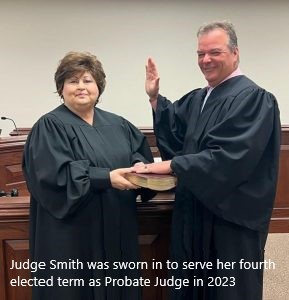
Department Function
- Open and maintain estate files
- Open and maintain conservatorship and adult guardianship
- Mental health, alcohol and drug commitments & hearing
- Issue marriage license & issue copies of marriage license
- Minor settlement hearing up to $25,000
- Wrongful death/pain and suffering settlement hearings
Probate Guide
We understand that this is a very sad and emotional time for you and your family. The Probate Court staff is committed to making the Probate process as easy on you and your family as we can. Know that we are here to assist you in any way we can during this very difficult time for you and your family.
Our job is to help you report information and transfer assets correctly. But please understand in our role we cannot provide any legal advice and urge you to consult with an experienced attorney in probate matters should you need legal advice. The following are possible Probate options for you that we will be happy to assist with:
- Estate Packet
If the Decedent owned real property a full estate must be opened. - Small Estate Packet
If the Decedent did not own real property and the probate assets total under $25,000.00 a small estate must be opened. -
Admit A Will To Probate
If the Decedent left a Last Will and Testament but there are no probate assets to transfer you will need to probate the will only.
Admit A Will To Probate Information & Application -
Filing A Formal Action
If the Will is not the original or the interested parties are not in agreement about who should serve as Personal Representative a filing of a formal action must be taken.
How To File A Formal Action
Probate Terms & Definitions
Common terms used in the probate process.
Accountings — Reports that contain the annual and final fiscal reports showing receipts and disbursements with date and purpose.
Application — a written request to the probate court for an order or statement of informal probate or appointment.
Beneficiary — as it relates to trust beneficiaries, includes a person who has any present or future interest, vested or contingent, and also includes the owner of an interest by assignment or other transfer and, as it relates to a charitable trust, includes any person entitled to enforce the trust.
Child — any individual entitled to take as a child by intestate succession from the parent whose relationship is involved and excludes any person who is only a stepchild, a foster child, a grandchild, or any more remote descendant.
Claims — liabilities of the decedent or protected person whether arising in contract, in tort, or otherwise, and liabilities of the estate which arise at or after the death of the decedent or after the appointment of a conservator, including funeral expenses and expenses of administration. The term does not include estate or inheritance taxes or demands or disputes regarding title of a decedent or protected person to specific assets alleged to be included in the estate.
Court — the court or branch having jurisdiction in matters.
Conservator — a person who is appointed by a court to manage the estate of a protected person.
Devise — when used as a noun, means a testamentary disposition of real or personal property, including both devise and bequest as formerly used, and when used as a verb, means to dispose of real or personal property by will.
Devisee — means any person designated in a will to receive a devise. In the case of a devise to an existing trust or trustee, or to a trustee on trust described by will, the trust or trustee is the devisee and the beneficiaries are not devisees.
Disability — means cause for a protective order as described by § 62-5-401 which states Upon petition and after notice and hearing in accordance with the provisions of this part, the court may appoint a conservator or make other protective order for cause as follows:
- (1) Appointment of a conservator or other protective order may be made in relation to the estate and affairs of a minor if the court determines that a minor owns money or property that requires management or protection which cannot otherwise be provided, has or may have business affairs which may be jeopardized or prevented by his minority, or that funds are needed for his support and education and that protection is necessary or desirable to obtain or provide funds,
- (2) Appointment of a conservator or other protective order may be made in relation to the estate and affairs of a person if the court determines that (i) the person is unable to manage his property and affairs effectively for reasons such as mental illness, mental deficiency, physical illness or disability, advanced age, chronic use of drugs, chronic intoxication, confinement, detention by a foreign power, or disappearance; and (ii) the person has property which will be wasted or dissipated unless proper management is provided, or that funds are needed for the support, care, and welfare of the person or those entitled to be supported by him and that protection is necessary or desirable to obtain or provide funds.
Distributee — means any person who has received property of a decedent from his personal representative other than as creditor or purchaser. A testamentary trustee is a distributee only to the extent of distributed assets or increment thereto remaining in his hands. A beneficiary of a testamentary trust to whom the trustee has distributed property received from a personal representative is a distributee of the personal representative. For purposed of this provision, “testamentary trustee” includes a trustee to whom assets are transferred by will, to the extent of the devised assets.
Estate — includes the property of the decedent, trust, or other person whose affairs are subject to this Code as originally constituted and as it exists from time to time during administration.
Exempt Property — means that property of a decedent’s estate which is described in § 62-2-401 which states The surviving spouse of a decedent who was domiciled in this State is entitled from the estate to a value not exceeding twenty-five thousand dollars in excess of any security interests therein in household furniture, automobiles, furnishings, appliances, and personal effects. If there is no surviving spouse, minor or dependent children of the decedent are entitled jointly to the same value. If encumbered chattels are selected and if the value in excess of security interests, plus that of other exempt property, is less than twenty-five thousand dollars, or if there is not twenty- five thousand dollars of exempt property in the estate, the spouse or children are entitled to other assets of the estate, if any, to the extent necessary to make up the twenty- five thousand dollar value. Rights to exempt property and assets needed to make up a deficiency of exempt property have priority over all claims against the estate except claims described in Section 62-3-805(a)(1). These rights are in addition to any right of homestead and personal property exemption otherwise granted by law but are chargeable against and not in addition to any benefit or share passing to the surviving spouse or children by the will of the decedent unless otherwise provided, by intestate succession, or by the elective share. Any surviving spouse or minor or dependent children of the decedent who fails to survive the decedent by one hundred twenty hours is deemed to have predeceased the decedent for purposes of this section.
Expense of Administration — includes commissions of personal representatives, fees and disbursements of attorneys, fees of appraisers, and such other expenses that are reasonably incurred in the administration of the estate.
Fair market value — is the price that property would sell for on the open market that would be agreed on between a willing buyer and a willing seller, with neither being required to act, and both having a reasonable knowledge of the relevant facts.
Fiduciary — includes personal representative, guardian, conservator, and trustee.
Foreign Personal Representative — means a personal representative of another jurisdiction.
Formal proceedings — means actions commenced by the filing of a summons and petition with the probate court and service of the summons and petition upon the interested persons. Formal proceedings are governed by and subject to the rules of civil procedure adopted for circuit courts and other rules of procedure in this title.
Guardian — means a person appointed by the court as guardian,but excludes one who is a guardian ad litem.
Guardianship proceeding — is as defined in § 62-5-101 (5) is a formal proceeding under the provisions of Part 3 of Article 5 (Section 62-5-301, et seq.) to determine if a person is an incapacitated person, or to appoint a guardian for an incapacitated person.
General power of appointment — means any power that would cause income to be taxed to the fiduciary in his individual capacity under Section 678 of the Internal Revenue Code and any power that would be a general power of appointment, in whole or in part, under Section 2041(a)(2) or 2514(c) of the Internal Revenue Code.
Heirs — means those persons, including the surviving spouse, who are entitled under the statute of intestate succession to the property of a decedent.
Incapacitated person — is as defined in § 62-5-101 (1) which states an “incapacitated person” means any person who is impaired by reason of mental illness, mental deficiency, physical illness or disability, advanced age, chronic use of drugs, chronic intoxication, or other cause (except minority) to the extent that he lacks sufficient understanding or capacity to make or communicate responsible decisions concerning his person or property.
Informal proceedings — means those commenced by application and conducted without notice to interested persons by the court for probate of a will or appointment of a personal representative. Informal proceedings are not governed by or subject to the rules of civil procedure adopted for the circuit court.
Interested person — includes heirs, devisees, children, spouses, creditors, beneficiaries, and any others having a property right in or claim against a trust estate or the estate of a decedent, ward, or protected person which may be affected by the proceeding. It also includes persons having priority for appointment as personal representative and other fiduciaries representing interested persons. The meaning as it relates to particular persons may vary from time to time and must be determined according to the particular purposes of, and matter involved in, any proceeding.
Issue of a person — means all his lineal descendants whether natural or adoptive of all generations, with the relationship of parent and child at each generation being determined by the definitions of child and parent contained in this Code.
Lease — includes an oil, gas, or other mineral lease.
Letters — includes letters testamentary, letters of guardianship, letters of administration, and letters of conservatorship.
Minor — means a person who is under eighteen years of age, excluding a person under the age of eighteen who is married or emancipated as decreed by the family court
Mortgage — means any conveyance, agreement, or arrangement in which real property is used as security.
Nonresident decedent — means a decedent who was domiciled in another jurisdiction at the time of his death.
Organization — includes a corporation, government or governmental subdivision or agency, business trust, estate, trust, partnership or association, two or more persons having a joint or common interest, or any other legal entity.
Parent — includes any person entitled to take, or who would be entitled to take if the child died without a will, as a parent under this Code by intestate succession from the child whose relationship is in question and excludes any person who is only a stepparent, foster parent, or grandparent.
Person — means an individual, corporation, business trust, estate, trust, partnership, limited liability company, association, joint venture, government or governmental subdivision, agency, or instrumentality, public corporation, or any other legal or commercial entity.
Personal representative — includes executor, administrator, successor personal representative, special administrator, and persons who perform substantially the same function under the law governing their status. “General personal representative” excludes special administrator.
Petition — means a complaint as defined in the rules of civil procedure adopted for the circuit court. A petition requires a summons and is governed by and subject to the rules of civil procedure adopted for the circuit court and other rules of procedure in this title.
Probate estate — means the decedent’s property passing under the decedent’s will plus the decedent’s property passing by intestacy.
Proceeding — includes action at law and suit in equity.
Property — includes both real and personal property or any interest therein and means anything that may be the subject of ownership.
Protected person — is as defined in § 62-5-101 (3) which states a “protected person” is a minor or incapacitated person for whom a conservator has been appointed or other protective order has been made.
Protective proceeding — is as defined in § 62-5-101 (2) which states a “protective proceeding” is a proceeding under the provisions of Section 62-5-401 to determine if a person is an incapacitated person, or to secure the administration of the estates of incapacitated persons or minors.
SCACR — means the South Carolina Appellate Court Rules.
Security — includes any note, stock, treasury stock, bond, debenture, evidence of indebtedness, certificate of interest, or participation in an oil, gas, or mining title or lease or in payments out of production under such a title or lease, collateral trust certificate, transferable share, voting trust certificate or, in general, any interest or instrument commonly known as a security or any certificate of interest or participation, any temporary or interim certificate, receipt or certificate of deposit for, or any warrant or right to subscribe to or purchase, any of the foregoing.
Security interest — means any conveyance, agreement, or arrangement in which personal property is used as security.
Settlement — in reference to a decedent’s estate includes the full process of administration, distribution, and closing.
Special administrator — means a personal representative as described by 62-3-614 through 62-3-618.
State — means a state of the United States, the District of Columbia, Puerto Rico, the United States Virgin Islands, a federally recognized Indian tribe, or any territory or insular possession subject to the jurisdiction of the United States.
Successor personal representative — means a personal representative, other than a special administrator, who is appointed to succeed a previously appointed personal representative.
Successors — means those persons, other than creditors, who are entitled to property of a decedent under his will or this Code.
Testacy — proceeding means a formal proceeding to establish a will or determine intestacy.
Testator — A person who has made a legally valid will before death.
Trust — includes any express trust, private or charitable, with additions thereto, wherever and however created. It also includes a trust created or determined by judgment or decree under which the trust is to be administered in the manner of an express trust. “Trust” excludes other constructive trusts, and it excludes resulting trusts, conservatorships, personal representative, trust accounts as defined in Article 6 (Sections 62-6-101 et seq.), custodial arrangements pursuant to the South Carolina Uniform Gifts to Minors Act, Section 20-7-140 et seq., of the 1976 Code, business trusts providing for certificates to be issued to beneficiaries, common trust funds, voting trust, security arrangements, liquidation trusts, and trusts for the primary purpose of paying debts, dividends, interest, salaries, wages, profits, pensions, or employee benefits of any kind, and any arrangement under which a person is nominee or escrowee for another.
Trustee — includes an original, additional, or successor trustee, whether or not appointed or confirmed by court.
Ward — is as defined in § 62-5-101 (4) which states a “ward” is a person for whom a guardian has been appointed.
Will — includes codicil and any testamentary instrument which merely appoints an executor or revokes or revises another will.
2024 Dillon County Council Meeting Schedule
January 1, 2024
Farmers Market Has Permanent Home
According to the USDA, “Farmers markets have become a critical ingredient to our nation’s economy, food systems, and communities. Connecting rural to urban, farmer to consumer, and fresh ingredients to our diets, farmers markets are becoming economic and community...
Equus Announces Sale of I-95 Inland Port
DILLON COUNTY, SC – February 3, 2022 – Equus Capital Partners, Ltd. (“Equus”), one of the nation’s leading developers and private real estate investment managers, announced the sale of 95 Inland Port Logistics Center, a 373,100 square foot warehouse logistics facility...
2024 Dillon County Government Holiday Schedule
January 1, 2024
Finklea & Moody Elected County Council Chair and Vice-Chair
Councilman T.F. “Buzzy” Finklea, Jr. was elected chairman, and Councilman Harold Moody was elected vice-chairman of the Dillon County Council at a recent meeting. This is the only vote of council taken by secret ballot. Chairman was the first to be taken up. Finklea...
Rep. Hayes Announces $5.2 Million For Stormwater Infrastructure Improvements
Rep. Jackie Hayes has announced that Dillon County will be getting $5.2 million for stormwater infrastructure improvements in Dillon County and the City of Dillon. The South Carolina Office of Resilience’s (SCOR) Disaster Recovery Office (DRO) Community Development...
Druscilla Blakely, Clerk To Council
Dillon County Administration
109 S 3rd Avenue
P.O Box 449
Dillon, SC 29536
Phone: (843) 774-1401
Fax: (843) 774-1443
Email: dblakely@dilloncountysc.org
County Council Meetings
Dillon County Council meets on the 4th Wednesday of each month beginning at 5 p.m. unless otherwise changed due to holidays. From time to time, Council approves a special called meeting. All special called meetings will be advertised in the local press and will also be posted on the County website and at the County Administration Building and Council Chambers.
2024 Dillon County Council Regular Called Meeting Schedule
Council Meets 4th Wednesday at 5 p.m.
Wednesday, January 24, 2024
Wednesday, February 28, 2024
Wednesday, March 27, 2024
Wednesday, April 24, 2024
Wednesday, May 22, 2024
Wednesday, June 26, 2024
Wednesday, July 24, 2024
Wednesday, August 28, 2024
Wednesday, September 25, 2024
Wednesday, October 23, 2024
Wednesday, November 20, 2024
Wednesday, December 18, 2024
County Council Meeting Place
County Council holds all meetings unless specified otherwise at the Dillon County Administration Building, Council Chambers, 109 S 3rd Avenue, Dillon, SC 29536
Requests To Address County Council
Should any person, group or organization request to be heard upon any matter at a regular or special meeting of Council, such person, group or organization shall submit a written request to the Chairman of County Council to place such matter on the agenda for the meeting at least seven (7) days prior to the date set for such meeting. The request shall specifically state the reason for the appearance.
The written request should be sent by USPS mail, hand delivered, or faxed to the Clerk to County Council. To make a request or for more information contact:
Druscilla Blakely, Clerk to Council
109 S 3rd Avenue
P.O Box 449
Dillon, SC 29536
Phone: (843) 774-1401
Fax: (843) 774-1443
Email: dblakely@dilloncountysc.org
2024 Council Agendas & Minutes
| Date | Agenda | Minutes |
|
January 24, 2024 |
Agenda |
|
February 6, 2024 Agenda Minutes
2023 Council Agendas & Minutes
| Date | Agenda | Minutes |
|
January 3, 2023 |
Agenda | |
| January 11, 2023 | Agenda | Minutes |
| January 20, 2023 | Agenda | Minutes |
| January 25, 2023 | Agenda | Minutes |
| February 22, 2023 | Agenda | Minutes |
| March 23, 2023 | Agenda | Minutes |
| April 26, 2023 | Agenda | Minutes |
| May 9, 2023 | Agenda | Minutes |
| May 16, 2023 | Agenda | Minutes |
| May 24, 2023 | Agenda | Minutes |
| June 28, 2023 | Agenda | Minutes |
| July 7, 2023 | Agenda | Minutes |
| July 26, 2023 | Agenda | Minutes |
| August 11, 2023 | Agenda | Minutes |
| August 17, 2023 | Agenda | Minutes |
| August 23, 2023 | Agenda | Minutes |
| August 29, 2023 | Agenda | Minutes |
| September 27, 2023 | Agenda | Minutes |
| October 2, 2023 | Agenda | Minutes |
| October 10, 2023 | Agenda | Minutes |
| October 20, 2023 | Agenda | Minutes |
| October 25, 2023 | Agenda | Minutes |
| November 9, 2023 | Agenda | Minutes |
|
November 15, 2023 |
Agenda | |
|
December 13, 2023 |
Agenda |
Minutes |
2022 Council Agendas & Minutes
| Date | Agenda | Minutes |
| January 26, 2022 | Agenda (PDF) | Minutes |
| February 1, 2022 (Called) | Agenda | Minutes |
| February 9, 2022 (Called) | Agenda | Minutes |
| February 23, 2022 | Agenda | Minutes |
| March 23, 2022 | Agenda | Minutes |
| April 19, 2022 | Agenda | Minutes |
| April 27, 2022 | Minutes | |
| May 25, 2022 | Agenda | Minutes |
| June 22, 2022 | Agenda | Minutes |
| July 20, 2022 | Agenda | Minutes |
| July 27, 2022 | Agenda | Minutes |
| August 16, 2022 | Agenda | Minutes |
| August 24, 2022 | Agenda | Minutes |
| September 15, 2022 | Agenda | Minutes |
| September 28, 2022 | Agenda | Minutes |
| October 5, 2022 | Agenda | Minutes |
| October 26, 2022 | Agenda | Minutes |
| November 9, 2022 | Agenda | Minutes |
| November 16, 2022 | Agenda | Minutes |
| December 5, 2022 | Agenda | Minutes |
| December 14, 2022 | Agenda | Minutes |
For agendas and minutes prior to 2022 you can click on the link below and go to the Dillon County Council Agendas & Minutes Archive Page.
The Dillon County Council has the power to create Boards and Commissions that assist the Council and staff with work important to the citizens of Dillon County. Dillon County Council appoints members of each Board or Commission. Many Boards, Commissions, or Committees are created so that each of the 7 Council members appoint a member so that each of the 7 Districts of the County are represented. Each Board, Commission, or Committee has its own mission, rules, and regulations as set and approved by County Council.
The current Boards & Commission are:
- Dillon County Airport Commission
- Dillon County Library Board of Trustees
- Dillon County Planning Commission
- Dillon County Zoning Board of Appeals
- Dillon County Public-Private Economic Development Partnership Board
- Dillon County Transportation Committee
- Dillon County Conversation District
Interested In Serving On A County Board, Commission or Committee?
Any citizen of Dillon County can request and apply to serve on any of the Boards, Commissions, or Committees. County Council has final say on those selected for each vacancy, but all applications will be reviewed and considered. If interested in serving on one of the Dillon County Boards, Commissions, or Committees contact your Council member or the Clerk To Council at:
Druscilla Blakely, Clerk To Council
Dillon County Administration
109 S 3rd Avenue
P.O Box 449
Dillon, SC 29536
Phone: (843) 774-1401
Fax: (843) 774-1443
Email: dblakely@dilloncountysc.org
County Council Member Contact Information
|
District 1 707 Curry Street |
District 2 301 Horseshoe Drive
|
District 3 2552 Harlee Bridge Rd |
|
District 4 PO Box 173 |
District 5 1948 Hwy 301 N
|
District 6 945 W Calhoun St Ext
|
|
District 7 1101 East Harrison St |
 District 1
District 1
Jamal Campbell,
Vice-Chairman
707 Curry Street
Dillon, SC 29536
Phone: 910-644-2893
Emails
jamal_campbell24@yahoo.com
jcampbell@dilloncountysc.org
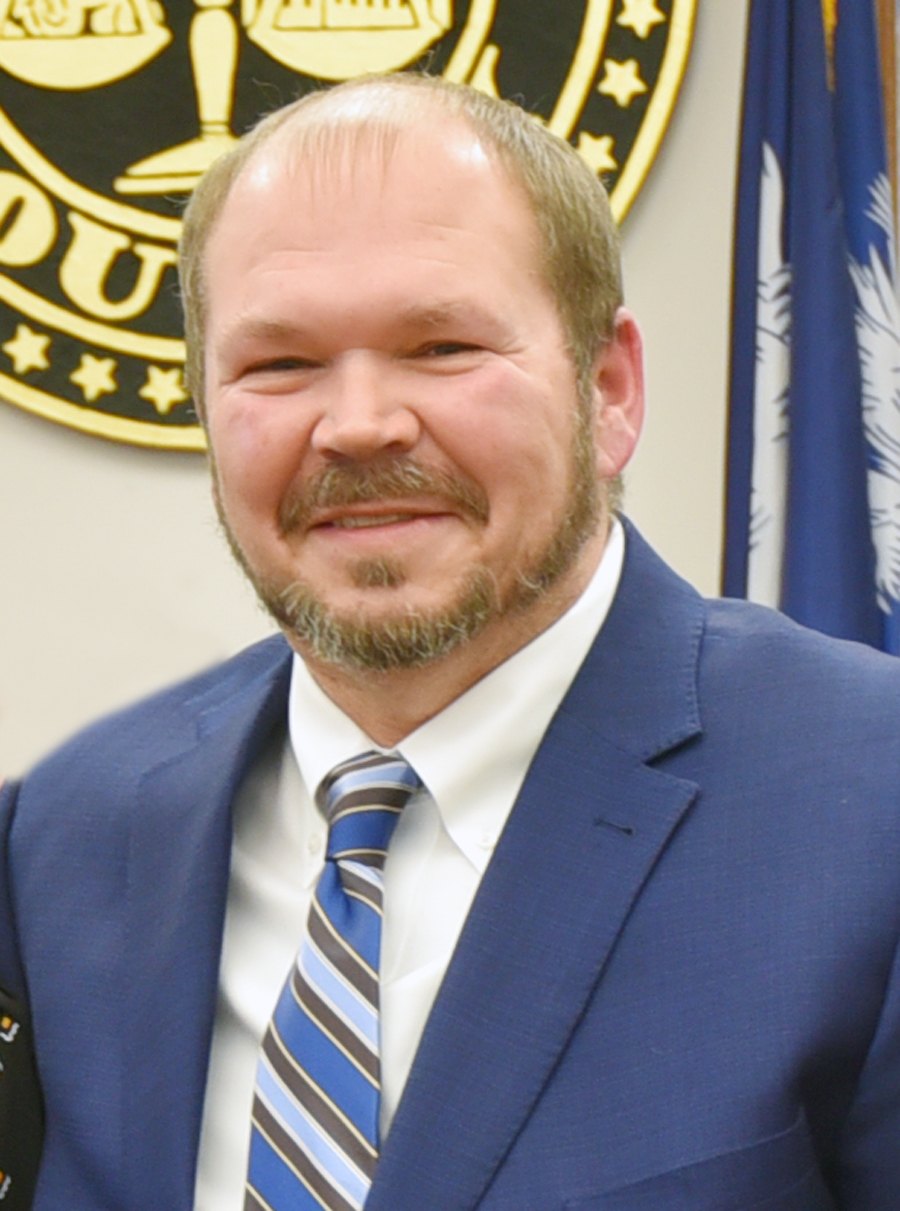 District 5
District 5
Kenny Cook Jr.
1948 Hwy 301 N
Dillon, SC 29536
Phone: 843-610-9780
Email:
kcook@dilloncountysc.org
Your content goes here. Edit or remove this text inline or in the module Content settings. You can also style every aspect of this content in the module Design settings and even apply custom CSS to this text in the module Advanced settings.
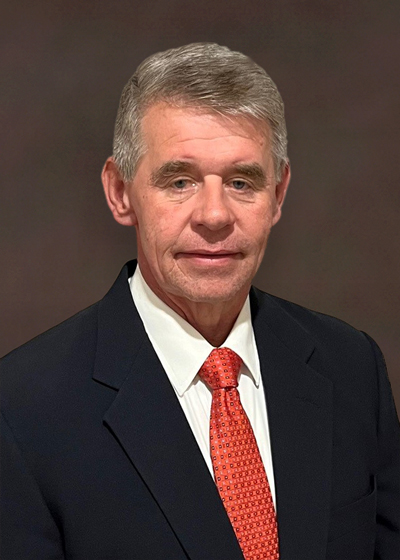 District 2
District 2
Dennis Townsend
301 Horseshoe Drive
Lake View, SC 29563
Phone: 843-621-4478
Emails:
dennistownsend@bellsouth.net
dtownsend@dilloncountysc.org
Your Title Goes Here
Your content goes here. Edit or remove this text inline or in the module Content settings. You can also style every aspect of this content in the module Design settings and even apply custom CSS to this text in the module Advanced settings.
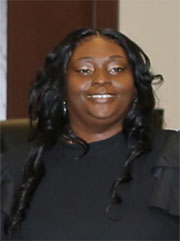 District 3
District 3
Detrice Dawkins,
Council Chairwoman
2552 Harlee Bridge Rd
Hamer, SC 29547
Phone:843-617-3425
Emails:
tricedawkins@yahoo.com
dmdawkins@dilloncountysc.org
Your Title Goes Here
Your content goes here. Edit or remove this text inline or in the module Content settings. You can also style every aspect of this content in the module Design settings and even apply custom CSS to this text in the module Advanced settings.
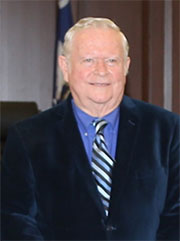 District 4
District 4
T. F. Finklea
PO Box 173
Latta, SC 29565
Phone: 843-752-5017
Cell: 843-632-1266
Emails:
dccbuzzyfinklea@gmail.com
tffinklea@dilloncountysc.org
Your Title Goes Here
Your content goes here. Edit or remove this text inline or in the module Content settings. You can also style every aspect of this content in the module Design settings and even apply custom CSS to this text in the module Advanced settings.
